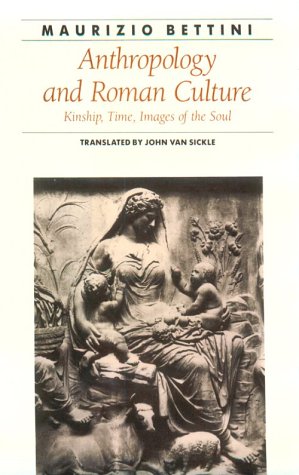Ancient Society and History
1 total work
How did Roman family relationships differ from our own? What metaphors did the Romans use to express abstractions such as time? What can we learn from the cultural symbols of their religion and literature? In 'Anthropology and Roman Culture,' Maurizio Bettini employs the methods of structural anthropology to examine a series of social, ethical, and religious issues characteristic of Roman culture in the classical period. Bettini begins by examining the system of kinship within the extended Roman family. He shows how the "stern" Roman father and "indulgent" Roman mother had their exact counterparts elsewhere in the family: the harsh "father's brother" '(patruus)' and the tolerant "mother's brother" '(avunculus)'. He discusses the complex Roman spatial conception of time (in which the future, for instance, could be said to lie "behind" as well as "ahead" of us), applying his findings in an analysis of Roman literature and culture. And he examines the cultural symbolism of the bee, the butterfly, and the bat, all of which served to represent the survival of the human soul after death.
Recent classical scholarship has seen the successful application of an anthropological approach to Greek studies. Maurizio Bettini has shown the ways in which this practice can benefit Roman studies as well. Drawing on a wide range of literary and documentary sources, 'Anthropology and Roman Culture' is now available for the first time in English translation.
Recent classical scholarship has seen the successful application of an anthropological approach to Greek studies. Maurizio Bettini has shown the ways in which this practice can benefit Roman studies as well. Drawing on a wide range of literary and documentary sources, 'Anthropology and Roman Culture' is now available for the first time in English translation.
